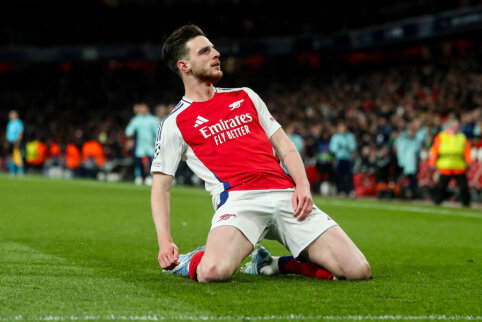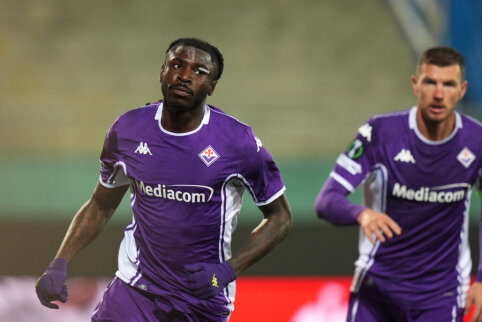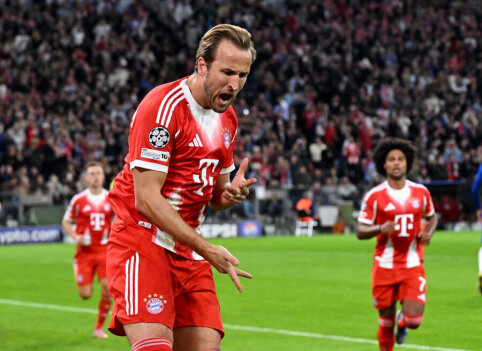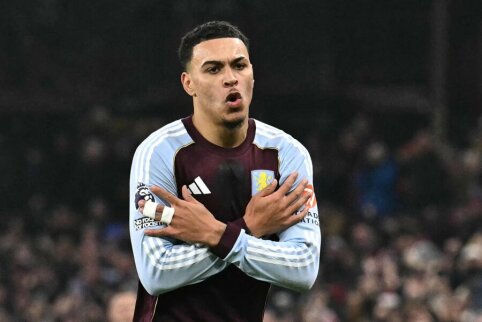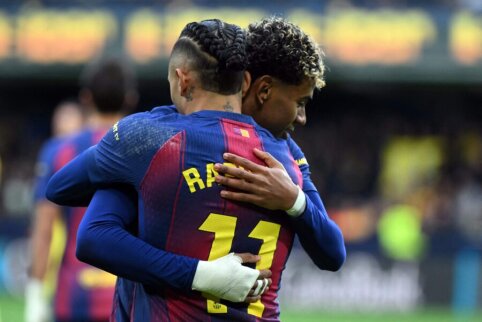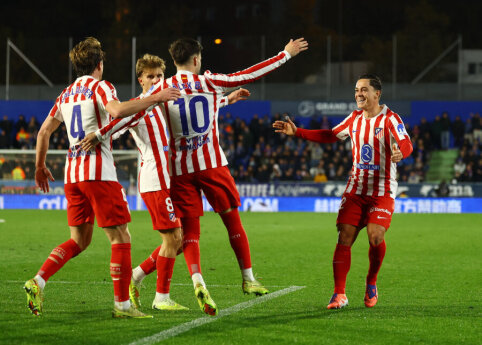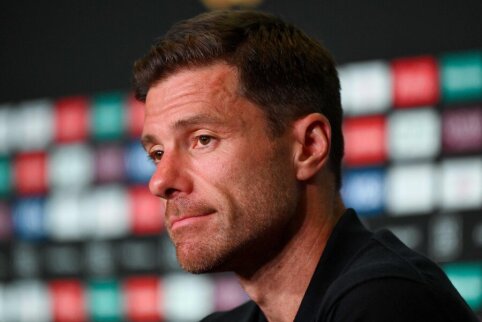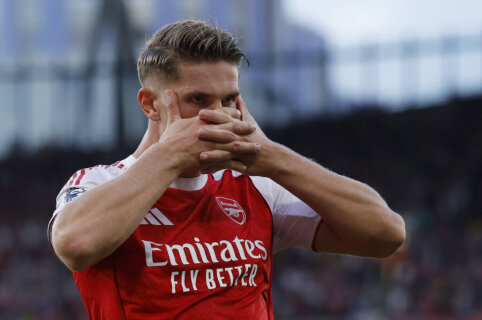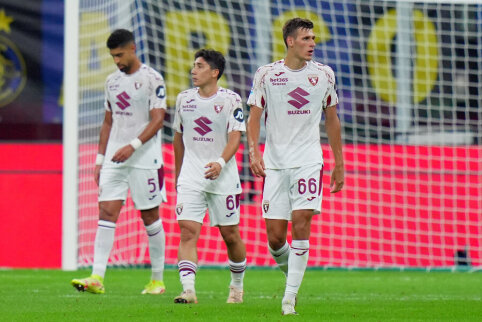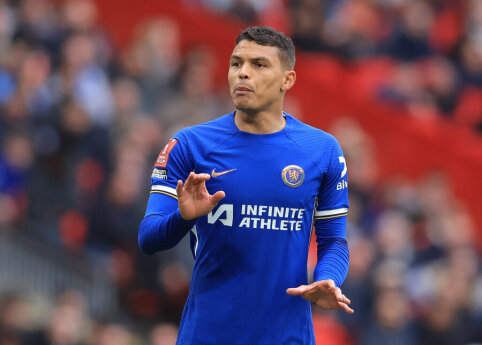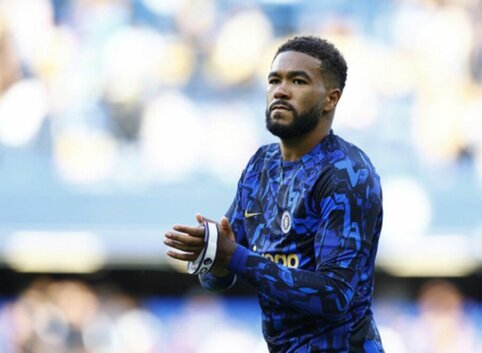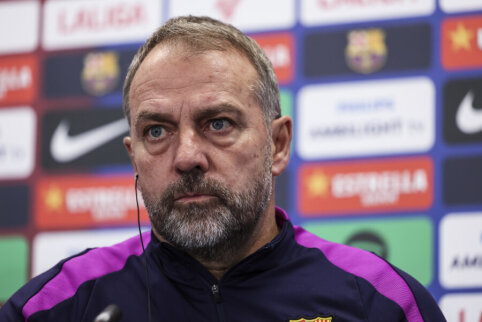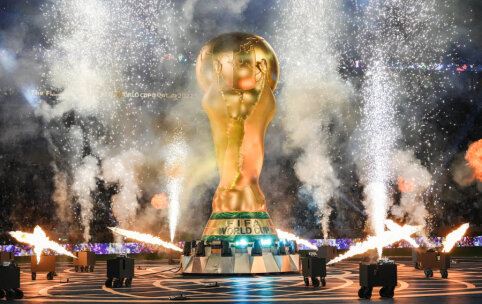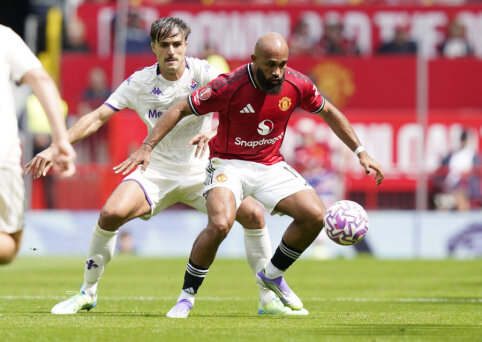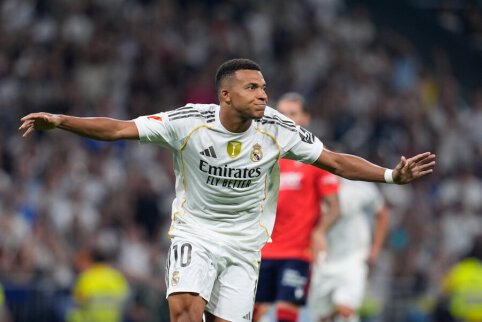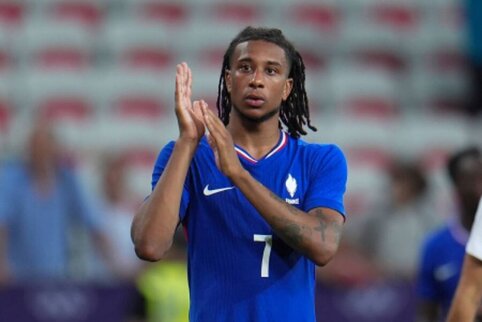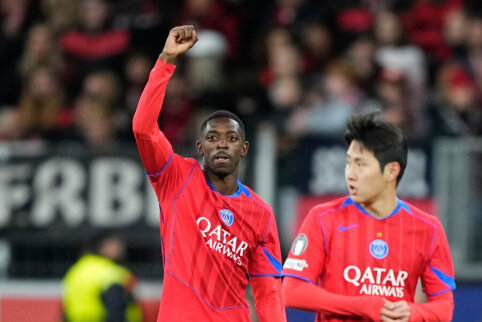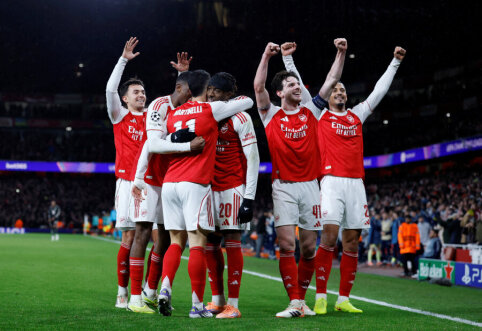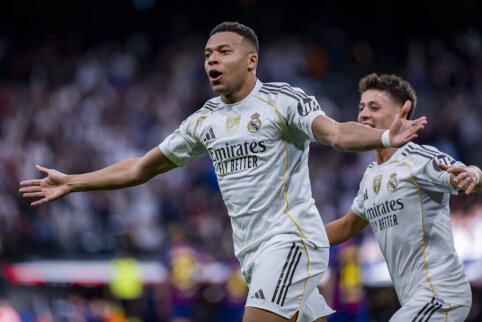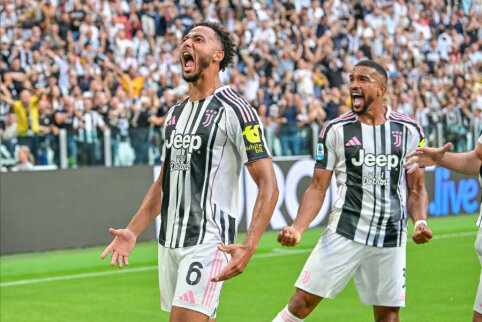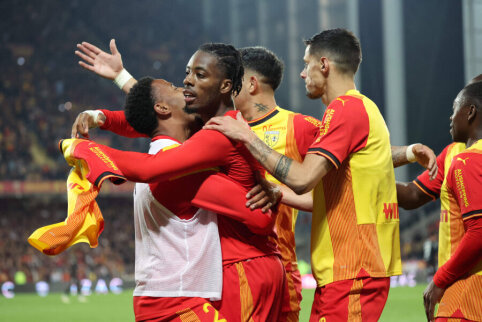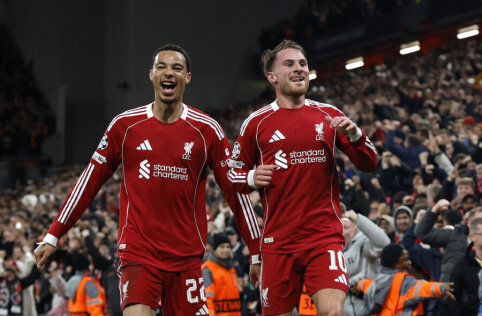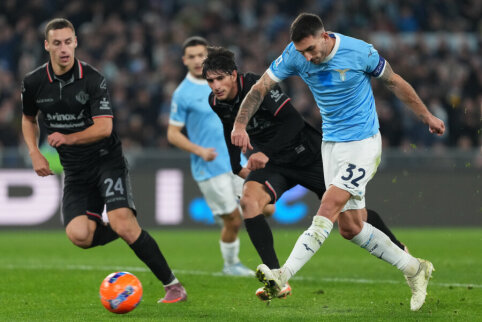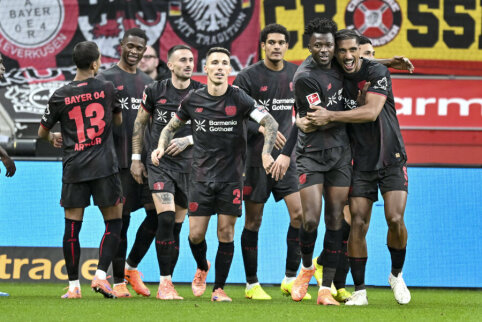
In the world of football, there is constant talk about the most talented and promising footballers who are expected to become the brightest stars of this sport soon. Since 2003, the most talented player in the world has been awarded the "Golden Boy" award, which is open to all footballers aged 20 or younger.
However, did all the players who received this award become the brightest stars in the world of football? As the announcement of the 2017 "Golden Boy" winner approaches, Eurofootball.com decided to investigate the careers of all the players who have won this award and see where they competed at the time against the most famous players who failed to win this title.
First part: 2003 - Rafael van der Vaart
Second part: 2004 - Wayne Rooney
Third part: 2005 - Lionel Messi
The fifth part of this article - tomorrow.
2006: Cesc Fabregas
Then team: Arsenal
Current team: Chelsea
In 2006, the "Golden Boy" award was won for the second year in a row by a player from the Barcelona academy, but this time the winner chose a completely different career path than Lionel Messi, who won the title the previous year.
Alongside L. Messi, Cesc Fabregas, who had an impressive World Juvenile Championship in 2003, where he was the top scorer and best player of the tournament, moved to London on September 11, 2003, where he signed a contract with Arsenal. The player motivated this choice by the greater opportunities in the main squad, and soon he proved to be right when, at just 16 years and 177 days old, he debuted in the league cup as the youngest player to debut in the team. In the next stage, he set another record by becoming the youngest player to score a goal in the team's history, but he did not have the opportunity to receive the team's Premier League winner's medal that season.
The next season, the Spaniard had even more opportunities to play. When Patrick Vieira suffered an injury, C. Fabregas took his place in the starting lineup and played successfully - he received constant compliments, and in a match against Blackburn Rovers, he became the youngest player to score a goal for Arsenal in the Premier League. Throughout that season, he played 46 matches and scored 3 goals, one of which was in the Champions League, making him the second youngest player in the league's history to score a goal in that competition. The season ended with him appearing from the first minutes in the FA Cup final, where Arsenal beat Manchester United after an 11-meter penalty shootout.
Before the 2005-2006 season, P. Vieira moved to Juventus, and Arsenal was ready to assign his playing time to the young team member. Although it was thought that it would be difficult for the Spaniard to successfully replace the famous Frenchman, C. Fabregas immediately proved that even at a young age, he had qualities that could be very useful to the team. Shining in the Champions League matches against Real and Juventus, he led the team to the final, where they lost to Barcelona. Despite Arsenal finishing the season without titles, the midfielder was already an important player not only in his team but also in the Spanish national team, so after such a season, where he played 50 matches and scored 5 goals, it was no surprise that this talented young man took the "Golden Boy" award in 2006.
16-year-old C. Fabregas's performance at the World U-17 Championship in 2006
In the summer of 2006, he attracted the interest of the strongest European teams, with the most attention shown by Real Madrid. However, Arsene Wenger said the player was not for sale, and the player was offered an unusually long contract (five years, with the possibility of extending it for three more seasons), which the player signed, emphasizing that he wanted to play in this team because of the playing style promoted by the team and coach Arsene Wenger.
The following season, Arsenal started to rejuvenate, and C. Fabregas was given an even bigger role in the team. Not missing a single Premier League match, the Spaniard showed another talent - the ability to create opportunities for his team-mates. After making 11 assistances, in this statistics category he shared the first position in the Premier League with Wayne Rooney. Although the club did not win titles, the midfielder was included in the UEFA team of the year and was one of the contenders to win the Premier League Player of the Year award.
Before the 2007-2008 season, there was a lot of uncertainty surrounding Arsenal. The team's vice president, David Dein, left the club, citing disagreements within the management, and soon the club also lost its all-time top scorer Thierry Henry. Before the season, C. Fabregas knew it was his turn to be the most important player in the team, and his individual performance revealed that he was ready for this role. He played 45 matches that season, scoring 13 goals and providing 22 assists, of which 20 were in the Premier League (the best result in the league). Although the club did not win titles, once again the midfielder contended for the title of the best Premier League player of the year, and without much competition, he was voted the Player of the Year.
On November 24, 2008, at just 21 years old, C. Fabregas was named the new team captain. After a poor start to the season, the Gunners demonstrated improving form in the middle of the 2008-2009 season, but then the team leader was injured, which forced him to miss 4 months, and Arsenal stayed without titles for the third season in a row. Playing only 33 matches due to the injury, he scored 3 goals and provided 16 assists during those games.
In the 2009-2010 season, Arsenal finally returned to the title race, and mainly due to C. Fabregas's performance. The Spaniard, who had a great season, helped his team compete for the Premier League title until the end of the season, with Arsenal reaching the quarter-finals of the Champions League. However, for the second consecutive year, the Gunners had a disrupted season due to C. Fabregas's injury, this time suffered in a Champions League match against Barcelona, which prevented him from helping his team in crucial season matches. Without their leader A. Wenger's proteges could not successfully finish the season and once again stayed without titles. However, it was hard to blame the team captain for this - he finished the season with 19 goals and the same number of assists.
After the brilliant performance in the previous season, rumors of C. Fabregas leaving Chelsea began to circulate. However, the new "Blues" coach Antonio Conte planned a different role for the player in the team, different from previous seasons - he often started on the bench instead of the field. Unlike his time at Barcelona, this time the midfielder seemed ready to accept this challenge and became a key member of the team in a season where Chelsea regained the Premier League title. Despite receiving less playing time, the Spaniard managed to be productive and ended the season with 7 goals and 13 assists. In the same season, he also achieved some memorable milestones: he played his 300th Premier League match, and after initially making his 100th assists in these competitions, a little later he surpassed Frank Lampard and rose to the second position in the league's history in the assists category.
After the season, there were no complaints from C. Fabregas, and the player should have a similar role in the Chelsea team this year as well.
Best moments of C. Fabregas's play in the Chelsea team
Having debuted for the Spanish national team in 2006, when he became the youngest player to wear the Spanish national team jersey in the last 70 years, C. Fabregas contributed to all the major titles Spain won. Not yet 20, he already represented his team at the 2006 World Cup, where the Spain national team was eliminated in the knockout stage.
A much more successful episode for the Spaniards was the 2008 European Championships. The Spaniards won the championship title, and the midfielder was a very important player in this championship. In the quarter-finals, C. Fabregas scored the decisive penalty goal in the match against Italy, where after 120 minutes of play no goals were scored, and both teams had to participate in a penalty shootout. In the semi-finals against Russia, the Spaniard provided two assists, and in the victorious final match against Germany, he played until the 63rd minute when he was substituted and replaced by Xabi Alonso. After the tournament, the Spanish national team member was included in the symbolic championship team.
At the 2010 World Cup, C. Fabregas didn't make it to the starting lineup of the Spanish national team, but when he rose from the bench, he managed to be noticed, and in the extra time of the final match, he made an assist for the only goal of the match, scored by Andres Iniesta.
A much more significant role was assigned to him by Vicente del Bosque at the 2012 European Championships. The player himself scored two goals and made one assist in these championships, and the Spaniards won the championship for the third time in a row.
After two years, at the World Cup, C. Fabregas was sidelined most of the time, but at the 2016 European Championships, he returned to the starting lineup of the team. However, in both championships, the final results of the Spanish team were not pleasing to fans: they were eliminated from further battles at the World Cup already after the group stage, and at the last European Championship, Italians eliminated them in the quarterfinals.
Two crucial 11-meter penalties by C. Fabregas in the 2008 and 2012 European Championships
Cesc Fabregas's career:
2003-2011 - Arsenal - 303 matches, 57 goals;
2011-2014 - Barcelona - 151 matches, 42 goals;
2014-present - Chelsea - 141 matches, 19 goals.
Spain national team - 110 matches, 15 goals.
The most famous players of this age group (born in 1986-1987) who did not win this title:
Sergio Ramos, David Silva, Edin Dzeko, Manuel Neuer, Gerard Pique, Luis Suarez, Edinson Cavani, Karim Benzema, Samir Nasri, Gonzalo Higuain.
Although in 2006 there were several young players shining, none of them could match C. Fabregas that year.
Sergio Ramos had the opportunity in 2006 to change the whole history of this award and become the first and only player in his position to win this title. The defender was a key player in Real Madrid and the Spanish national team's starting lineup, and in these teams, he not only played constantly but also scored goals. To achieve anything close to Cesc Fabregas that year was only hindered by the fact that he did not win any titles in 2006.
David Silva had a good season at Celta before returning to Valencia in 2006, where he quickly settled. That year, he wore the Spanish national team jersey for the first time.
Samir Nasri was considered one of the biggest talents in the world at the time, and he had a great future envisioned. The midfielder received plenty of playing time both in the Ligue 1 championship and in UEFA Cup matches, playing 49 matches in the 2005-2006 season.
Gerard Pique belonged to the Manchester United team, but he did not have many opportunities there. In the 2005-2006 season, he played only three matches in the Premier League and was then loaned back to the academy in the second Czech league.
After sitting on the bench for a long time at Schalke in 2005-2006, Manuel Neuer finally got the chance to shine in Germany's top league later that year. The goalkeeper's debut in the team was impressive - he didn't concede any goals. Later, the team's coach, Mirko Slomka, initially benched the young talent, but after a couple of matches, he returned the keeper to the starting lineup, where M. Neuer remained until the end of the season.
At that time, Karim Benzema belonged to the Lyon team. The club noticed the striker's talent, and in the 2005-2006 season, he became a fixture at the team.
Luis Suarez began playing at Nacional in 2006. Although his 10 goals in 27 matches at that time were not enough to represent his national team, he was noticed by Groningen scouts.
Edinson Cavani was still playing in South America in 2006 - the Uruguayan was part of the River Plate team. The attacker scored 7 goals in 18 matches during the 2005-2006 season.
Gonzalo Higuain was still playing in South America at the time - the Argentine belonged to the River Plate team. He scored 7 goals in 18 matches in the 2005-2006 season.
Edin Dzeko at that time was far from the player who now scores goals in almost every Serie A match. The attacker played in the Czech Republic, in the Teplice team, where in the 2005-2006 season he was loaned to a second league team.
